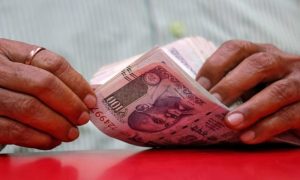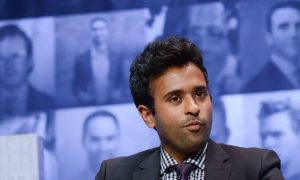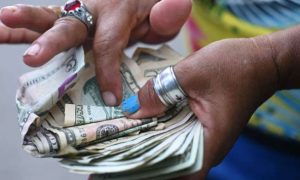The past few years have been a lot.
“I did a lot of reflection on how we are coming off the back of the COVID-19 pandemic, into a cost-of-living crisis, into interest rates rising — we never seem to come up for air,” says Bomikazi Zeka, assistant professor in finance and financial planning at the University of Canberra.
Major change might feel overwhelming right now, but making small tweaks with our money can have a positive impact, she says.
Also Read- Oil markets are still volatile, U.S. energy chief says, calling for further supplies
We asked Dr Zeka and two other personal finance experts to share what achievable things we can do to spend less.
Start here: track your spending
Dr Zeka says reducing our spending and increasing savings (where possible) isn’t about “reinventing the wheel”.
“It’s taking the time out to assess your financial situation and see where there are opportunities to improve.”
And the best place to start is with seeing what you spend.
“Track everything you spend down to the cent. It’s tedious for sure, but you won’t know about opportunities to increase savings or cut spending if you don’t track it.”
Dr Zeka uses “old school” method of an excel spreadsheet, but there are also phone apps that can help, or you can simply write it down.
Once you start tracking your spending, she says it’s easier to create a budget and see where you can cut back.
Getting back to basics and remember to “save before you spend” is Dr Zeka’s other top tip.
“If you just take the time to put aside even five per cent of your income, when a time of crisis arrives, you have that reserve in place.”
Change habits and snag deals
Finance broker John Ng has been sharing savings hacks on his social media, focusing on simple changes we can use most weeks.
Also Read- Who Actually Owns Trader Joe’s Grocery Stores? The Answer May Surprise You
Using appliances like your dishwasher and washing machine between off-peak times of 11pm and 7am is one example, if you’re eligible for reduced rates.
Mr Ng says he’s a “huge advocate” for petrol fuel lock apps, which lets you select the type of fuel you want, search for the best local fuel price, and lock it in for up to seven days.
“Just last night I saved $23.36 on a full 50.35L tank fill,” Mr Ng says.
Look for ‘money leaks’
Many of us have areas of spending that might be forgotten or unconscious, what Lea Clothier, a behavioural money coach and former financial adviser, calls “money leaks”.
She suggests checking bank and credit card transactions for expenses like subscriptions or recurring direct debits for things that might be unused, forgotten or where you aren’t getting value for your money.
While reviewing those, Ms Clothier suggests taking the “three Rs approach” to evaluate your spending.
“Are there particular expenses that you could cut back on, but still enjoy?” she asks.
For example, moving to a cheaper subscription or plan, or reducing the frequency of the expense – such as having coffee every other day rather than every day.
Asking yourself if you can replace the spending is another strategy, says Ms Clothier.
Her examples include:
- If you like takeaway, could you have some ready-made or prepared foods in the fridge to heat up instead?
- Instead of buying books online, could you borrow them from the library or swap with a friend?
- Instead of buying brand new, can you look to buy discounted or second hand items?
Also Read– Top 5 Trending Stocks: Tesla, Rivian Lead the Pack In Today’s Market Round-Up
Finally, can you choose one or two expenses to resist?
“Are there any expenses that are really just unnecessary … could you actually resist them perhaps with a little more willpower or planning?”
Perhaps taking a break from buying clothes, or testing a “cooling off period” with items you usually impulse buy.









































